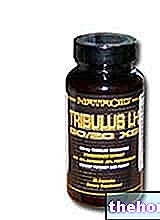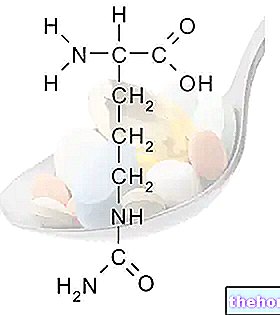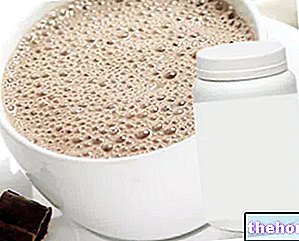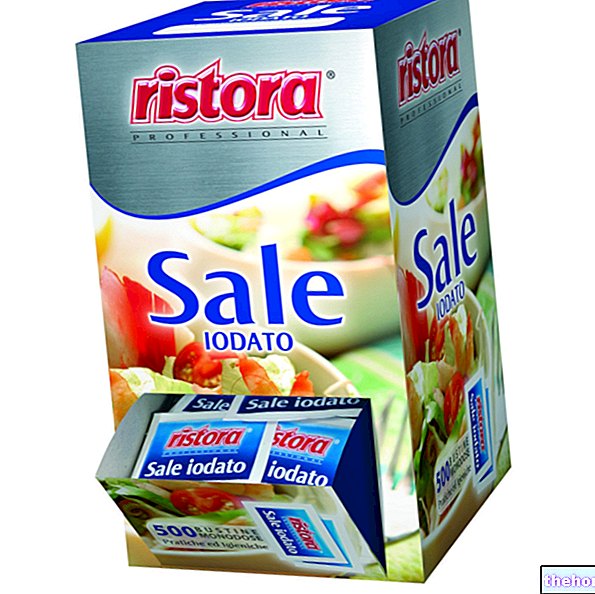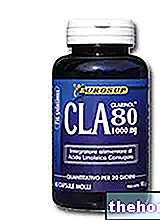What is atherosclerosis
Atherosclerosis is a degenerative disease that affects large caliber vessels, such as the coronary arteries, carotids, femoral arteries and the aorta. It is basically caused by the deposit of fats on their walls, which then undergo a long series of degenerative processes with subsequent reduction of the natural vascular elasticity.

From what has been said so far, it is easy to imagine what emerges from epidemiological studies and that is that atherosclerosis is currently the leading cause of death in industrialized countries. Even more alarming is the observation that the disease begins at an early age and evolves slowly as it progresses. of age. Important factors such as smoking, overweight and sedentarism should therefore be carefully monitored from early childhood.
Diet and Useful Foods
The dietary therapy of atherosclerosis, once exclusively focused on the control of cholesterol and triglycerides, now takes into consideration many other important factors and makes use, among other things, of a long series of natural products.
Fish
Intake of fish significantly reduces mortality due to cardiovascular disease in the population at risk.
The fats it contains, the famous omega 3, are an integral part of secondary prevention therapy in patients with a previous heart attack, where they are taken at a dosage of approximately 1 g / day. These essential nutrients contribute to lower plasma triglyceride levels by interfering with their incorporation in the liver into VLDL. For this reason they possess an "important antithrombotic action (remember, in fact, that high levels of triglycerides in the blood reduce the process of fibrinolysis, responsible for the dissolution of intravasal clots; for this reason" hypertriglyceridemia is accompanied by an increased risk of cardiovascular diseases) . The omega 3s are also endowed with anti-inflammatory activity, which prevents the breakdown of already formed atheromatous plaques.
A healthy and balanced diet should therefore include at least 3 fish dishes per week.
Supplements
GINKGO BILOBA, BLUEBERRY, TANACET, GARLIC AND NUTMEG:
These are natural products particularly studied and used for their antiplatelet, hypofibrinogenizing (preventing the formation of thrombi) and fibrinolytic (facilitating the dissolution of blood clots) activity.
CHITOSANO
It is a polysaccharide obtained from the shells of crustaceans, which acts at the gastric level by electrostatically attracting fats and preventing their absorption in the intestine.
GUAR GUM, PSYLLIUM, GLUCOMANNAN, MUCILLAGES, PECTINS, INULIN, FRUCTOLOIGOSACCHARIDES
They contain non-digestible polysaccharides (fibers) which, in contact with water, swell, increasing in volume and reducing the absorption of sugars, fats and cholesterol.
Rather than encouraging the intake of dietary supplements, dietary fiber should be consumed through a diet rich in plant foods (at least two daily portions of fruit and three of vegetables).
FOLIC ACID, VITAMIN B6 AND VITAMIN B12
They prevent the negative effects of homocysteine, a sulfur amino acid that facilitates the formation of blood clots in the arteries, but also in the veins.
LECITHIN AND SOY PROTEIN
Lecithin facilitates the action of HDL lipoproteins, known to most as "good cholesterol", which act as "scavengers" able to cleanse the arteries of the fats that are deposited there. Even soy proteins, at a dose of 25 grams per day, they have a direct action on the plasma cholesterol level and, consequently, on the protection of the vessels from atherosclerosis.
Other articles on "Supplements, Foods and Atherosclerosis"
- Diet and atherosclerosis
- Atherosclerosis
- Atherosclerosis: causes and risk factors
- Atherosclerosis: symptoms and treatment
- Atherosclerosis - Medicines for the treatment of Atherosclerosis

